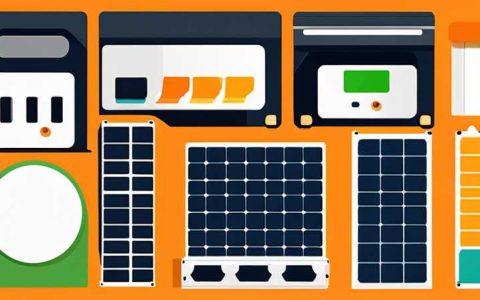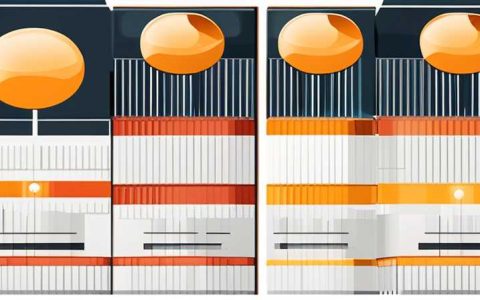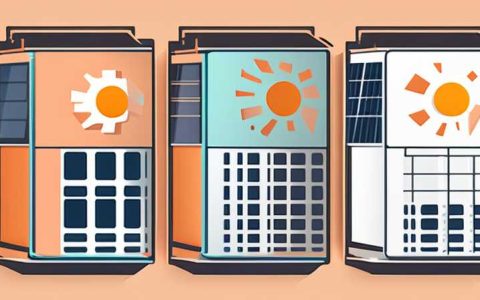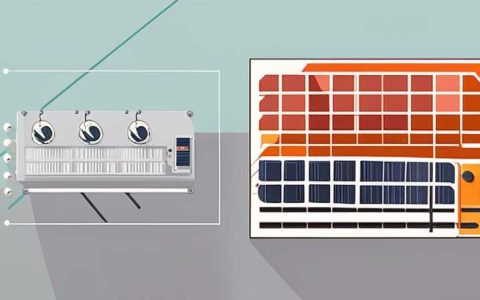
To effectively manage solar dirt, several strategies should be adopted to maintain the efficiency and longevity of solar panels. 1. Regular cleaning is essential, as accumulated dirt can significantly reduce energy output; 2. Select appropriate cleaning materials to prevent damage while ensuring effectiveness; 3. Schedule cleaning according to environmental factors, like local weather patterns; 4. Consider professional servicing if the panels are hard to reach or require specialized equipment. Among these, regular cleaning plays a pivotal role, as even a thin layer of dust can obstruct sunlight, compelling many homeowners and businesses to integrate cleaning into their maintenance routines.
- IMPORTANCE OF CLEANING SOLAR PANELS
The efficiency of solar panels is fundamentally linked to their cleanliness. Dirt and debris can accumulate rapidly, which leads to a substantial reduction in performance. When dust, pollen, or bird droppings settle on panels, the sunlight absorption capabilities are compromised, causing a significant dip in energy production. This is especially evident in areas with dry and dusty climates, where regular precipitation isn’t sufficient to wash away build-up.
Moreover, neglecting cleaning not only impacts energy generation but also shortens the lifespan of the panels. Contaminants may cause scratches or etching, leading to long-term damage that could necessitate costly repairs or replacements. For these reasons, homeowners and businesses that invest in solar technology must prioritize regular maintenance to maximize their return on investment.
- OPTIMAL CLEANING MATERIALS
Choosing appropriate cleaning materials is critical in maintaining solar panel integrity. Harsh chemicals or abrasive scrubbers can lead to irreparable damage. Ideally, a non-abrasive sponge or a soft cloth should be employed along with water. In some cases, a mild soap solution can assist in loosening hardened dirt without harming the solar panel’s protective coatings.
Additionally, specialized solar panel cleaning solutions are available on the market, designed specifically to enhance performance without risking the panel surface. Researching and selecting certified products can help ensure the materials used are safe, leading to effective cleaning without detrimental effects. Careful attention to the cleaning solution ensures that the lifespan and efficiency of the panels are preserved.
- TIMING OF CLEANING
Timing also plays an important role in determining the effectiveness of solar panel maintenance. Cleaning during early morning or late afternoon hours is recommended, as this avoids the intense heat of midday when panels might be hotter. Hot panels can cause cleaning solutions to evaporate quickly, leading to streaking or residue left behind.
Furthermore, considering environmental conditions can guide the cleaning frequency. Areas with increased dust, pollen, or other particles may necessitate more regular cleanings. By monitoring the weather and local conditions, owners can devise a cleaning schedule that optimizes panel performance while being mindful of water usage and overall efficiency.
- PROFESSIONAL CLEANING SERVICES
For those unable to clean their solar panels themselves, or for larger installations that are difficult to reach, professional solar panel cleaning services present an advantageous option. Experts often utilize specialized equipment and cleaning techniques that ensure panels are cleaned safely and efficiently. They bring experience, which significantly reduces the risk of accidental damage.
Moreover, employing professional services can save time and ensure thorough cleaning, particularly in larger installations, such as solar farms. Regularly scheduled professional cleanings can be part of a comprehensive maintenance plan, which may include inspections and performance assessments. Engaging professionals ensures that panels remain in optimal condition, driving sustained energy production and protecting the initial investment.
- ENVIRONMENTAL CONSIDERATIONS
Consideration for local wildlife and the environment should also inform cleaning practices. Using eco-friendly cleaning solutions protects surrounding flora and fauna. The impact of runoff from cleaning is an area of concern, especially in eco-sensitive zones near natural habitats.
Developing an environmentally-conscious approach aligns maintenance with sustainable practices, thereby enhancing the ethical standing of solar energy implementations. Investigating biodegradable cleaning agents or utilizing pure water systems can minimize ecological footprints. Balancing maintenance needs with environmental stewardship ensures the responsible use of solar technologies.
- ALTERNATIVE SELF-CLEANING TECHNOLOGIES
Emerging technologies have introduced alternative cleaning mechanisms, reducing the reliance on manual labor while ensuring performance. Automated cleaning systems or coatings that repel dirt are among these innovations. Such systems use brushes, water jets, or specialized coatings that leverage surface tension to prevent dirt accumulation.
While these alternatives can represent a greater initial investment, they offer long-term benefits. Reduced cleaning frequency and increased energy efficiency can enhance overall savings. As solar technologies evolve, exploring self-cleaning options may yield a highly effective maintenance strategy, especially for installations in hard-to-reach locations.
- MONITORING PERFORMANCE AND OUTPUT
Effective maintenance extends beyond cleaning; monitoring system performance is equally crucial. Using monitoring tools and applications allows owners to track energy production and identify any discrepancies. A significant drop in energy output could signal the need for cleaning or indicate potential technical issues requiring attention.
Additionally, regular assessments contribute to ongoing education about the system’s performance, helping owners understand the impact of their cleaning schedules. By pairing monitoring with regular upkeep, owners can ensure maximum efficiency and longevity of their solar investment.
- CUSTOMER EDUCATION AND TRAINING
It’s vital for solar panel owners to understand the importance of maintenance. Providing resources and training on cleaning techniques helps empower users to take ownership of their solar technology. Through workshops, online resources, or tutorial videos, companies can educate customers about best practices for maintaining solar efficiency.
User education not only enhances performance but fosters a sense of responsibility and engagement with sustainable technologies. An informed user base is more likely to participate in regular maintenance, thereby enhancing the longevity and performance of solar systems. This culture of care can lead to widespread adoption of best practices in residential and commercial contexts.
- ECONOMIC IMPACTS OF MAINTENANCE
Neglecting maintenance can have economic consequences that echo through the solar energy sector. With decreased efficiency, energy yields diminish, impacting return on investment. For commercial enterprises that rely on solar as a significant portion of their energy budget, this reduction can lead to higher operational costs.
Conversely, regular maintenance and cleaning practices can help preserve energy production efficiency. Investing in quality cleaning solutions or professional services ensures that panels function at peak capacity, indirectly contributing to greater energy savings. Thus, understanding the economic implications of solar dirt management promotes an eagerness to maintain systems proactively.
FREQUENTLY ASKED QUESTIONS
WHAT IS SOLAR DIRT, AND HOW DOES IT AFFECT ENERGY PRODUCTION?
Solar dirt describes the accumulation of dust, debris, bird droppings, or any obstruction that reduces the amount of sunlight reaching the solar panels. This build-up can result in substantial energy loss, potentially dropping electricity production by 20% or more, depending on the severity of the dirt accumulation. Regular cleaning is essential for maintaining high efficiency. It’s advisable to establish a routine cleaning schedule, particularly in regions prone to dust storms or heavy pollen seasons.
HOW OFTEN SHOULD SOLAR PANELS BE CLEANED?
The frequency of cleaning varies based on several factors, including local climate, the environment surrounding the panels, and specific design characteristics. In areas with attracted dust or heavy vegetation, more frequent cleaning may be necessary—perhaps every few weeks. Conversely, in cleaner environments, biannual cleaning may suffice. Monitoring energy production trends can help indicate when cleaning is overdue, ensuring optimal functioning.
ARE PROFESSIONAL SOLAR CLEANING SERVICES WORTH THE COST?
Engaging professional cleaning services can be beneficial, particularly for large installations or hard-to-reach areas. These professionals come equipped with knowledge and tools that enable thorough, safe cleaning without risking damage to the panels. The upfront costs may be higher than individual cleaning; however, considering the long-term benefits and potential increases in energy production, these services typically offer a sound return on investment.
FINAL THOUGHTS
Effectively dealing with solar dirt is integral to maintaining the performance and longevity of solar panel systems. Regular cleaning prevents energy loss caused by accumulated debris. By using the right tools and solutions, users can ensure that panels are cleaned safely, minimizing the risk of damage. The timing of the cleaning is crucial—early morning or late afternoon sessions tend to yield the best results. Additionally, professional cleaning services present a viable option for those who may find it difficult to maintain their systems themselves, ensuring thorough cleaning while saving time.
Environmental implications should also be considered, with eco-friendly cleaning methods reinforcing the commitment to sustainability. New technologies are continually emerging that may innovate traditional cleaning practices, such as self-cleaning panels or automated cleaning systems. Gathering performance data through monitoring tools further enhances management strategies, allowing for informed decisions regarding maintenance schedules. Education for solar panel users on best practices prevents neglect and promotes optimal functionality. Ultimately, consistent upkeep of solar systems contributes both to personal energy efficiency and broader environmental goals, underscoring the significance of effective management to maximize returns.
Original article by NenPower, If reposted, please credit the source: https://nenpower.com/blog/how-to-deal-with-solar-dirt-2/











